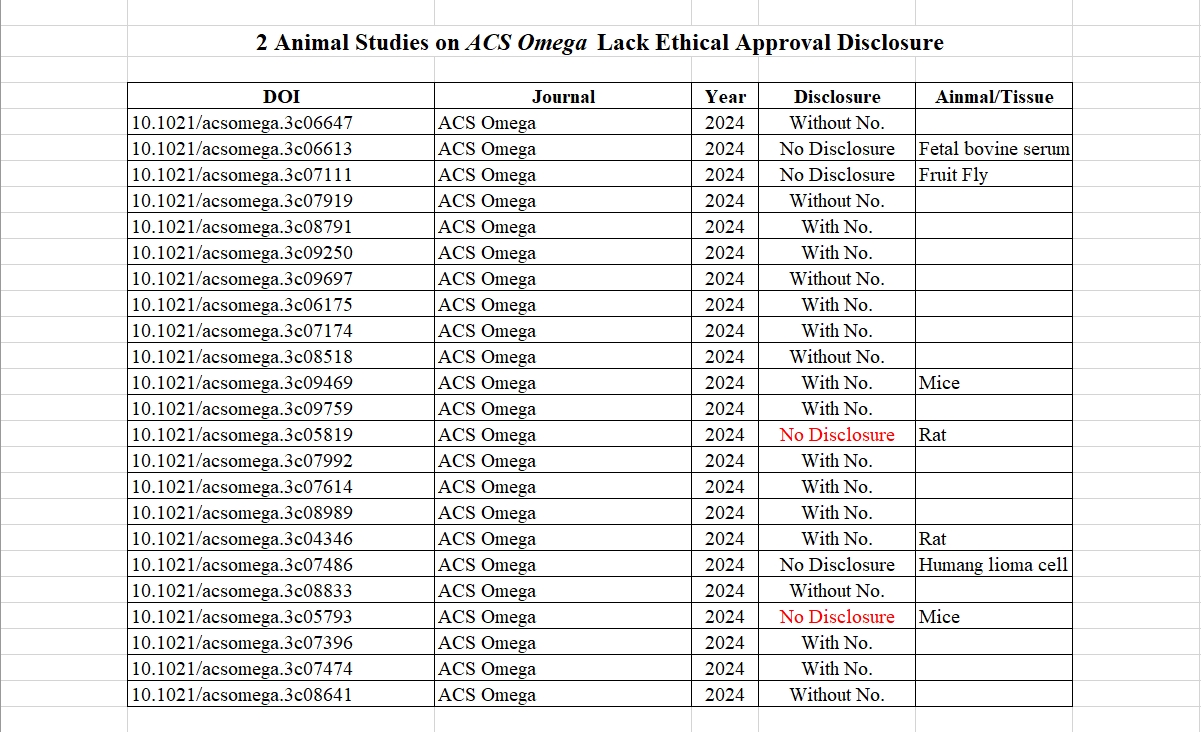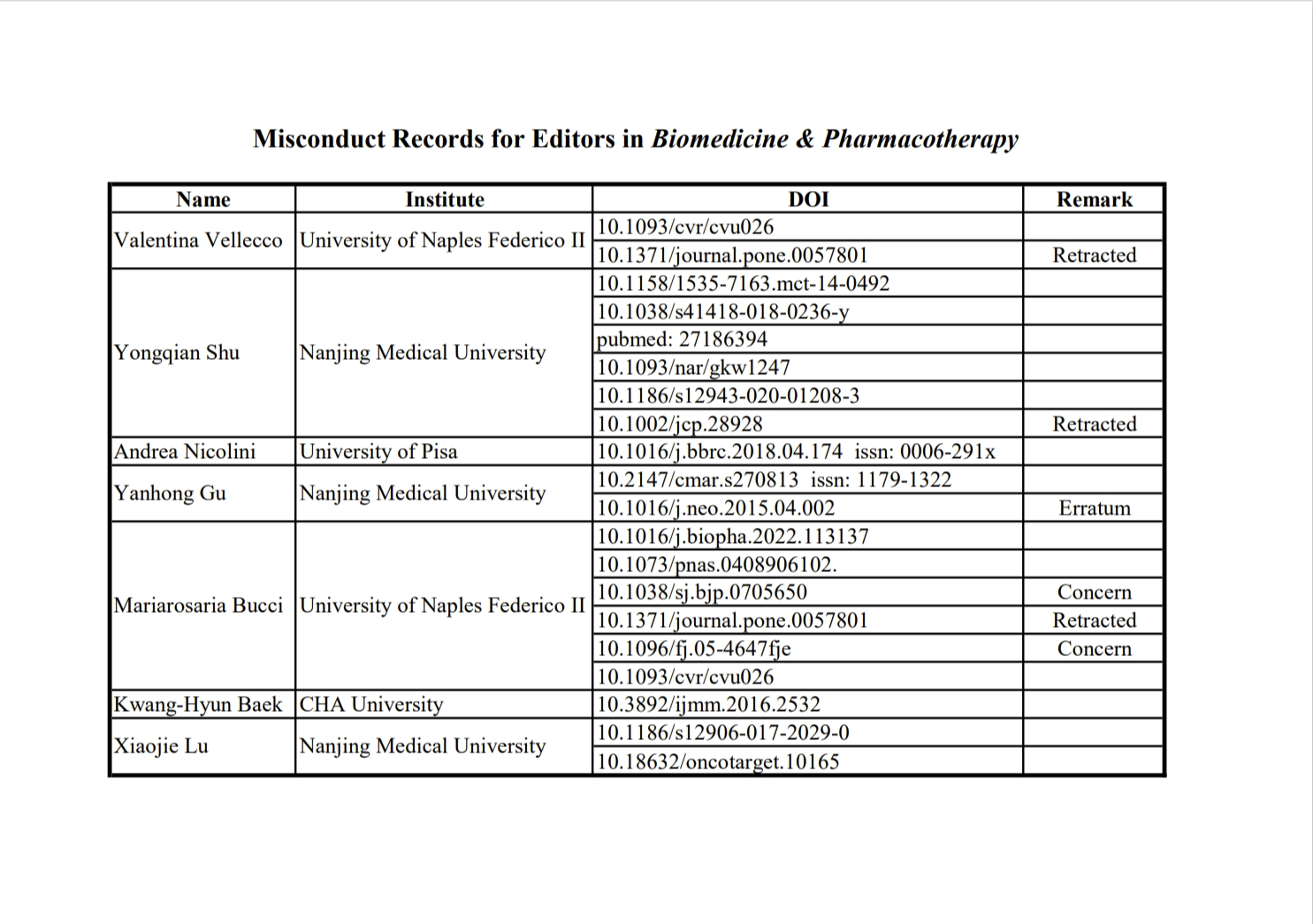Abnormal Patterns in HAO Dingjun's Papers
Before the Year of Loong, a paper [1] published by HAO Dingjun's team at Xi'an Jiaotong University attracted global attention, not because the team made a major breakthrough, but because they inappropriately used AI tool to fabricate images in the paper. Subsequently, the paper was retracted by the journal.
After that, the 5GH team conducted a screening of papers published by HAO Dingjun, the corresponding author of Ref [1] , and found multiple abnormal patterns.
(1) Huge Number of Publications
The 5GH team identified 41 papers which were published by HAO Dingjun and his co-authors in 2023 (two were actually published in January 2024), with an average of 0.75 (39/52) papers published per week. Considering that some articles may not be listed on Google Scholar, the number of papers published by HAO Dingjun's team per week might be close to the order of 1, an extremely high number.
5GH team accessed to and further investigated 28 of the 41 papers mentioned above (highlighted in yellow).
(2) "Disposable E-Mail"
The most notable pattern is the use of non-institutional e-mail. Among these 28 papers, 7 did not show HAO’s e-mail address, 8 showed institutional e-mail address to HAO, and 14 showed non-institutional e-mail address to HAO (one of them showed both HAO's institutional and non-institutional e-mail address).
The total number of these non-institutional e-mail address is 13, 3 of which were used twice, and the remaining 10 accounts were used once and are defined as "Disposable E-Mail".
The use of "Disposable E-Mail" often indicates a role of paper mill. Commercial companies, known as "paper mills", produce papers and submit them to the journals on behalf of the authors. In this process, they use the newly registered e-mail address in the submission process.
There is currently no direct evidence that HAO’s paper came from paper mills, but one of e-mail address (1310301542@bjmu.edu.cn) seems particularly suspicious. Currently, the 5GH team is conducting further investigation on this paper.
(3) Lack of Ethical Approval Disclosure
Among these 28 papers, except for a few reviews and cell studies, the vast majority are human or animal experiments (including questionnaire surveys, etc.). However, 6 of the papers did not disclose whether authors got ethical approval. In addition, 11 paper claimed that the authors obtained ethical approval, but did not disclose the registered numbers.
It is unclear whether journals required the ethical approval details from authors, or whether the authors failed to obtain the approval. Considering research teams often violate the ethical guidelines (including but not limited to: conducting experiments without obtaining ethical approval, inconsistency between ethical approval and experimental content, etc.), the 5GH team calls on publishers and stakeholders to disclose ethical approval details.
(4) Unreasonable Statement of Author Contribution
The 5GH team found that 3 papers had unreasonable author contribution statements, and 1 paper had unreasonable author ordering. These unreasonable statements of author ontribution included claims that HAO (a highly qualified doctor/researcher) was engaged in chart production, software use, data collection, and literature research. In one article, HAO was listed as the first author, but not the corresponding author. This unconventional statement of author contributions and ordering is likely to indicate academic misconduct.
(5) No Fund
Among these 28 papers, 2 did not disclose funding information, and 5 stated that "no financial support was received for the research". However, HAO and his co-workers received a large number of funding from China agencies. It is worth noting that among the 4 papers co-signed by GUO Xinyu (the first author of Ref [1]) and HAO Dingjun (all published in Frontiers journals), no fund information was disclosed (3 stated that they had not received any fund support, and 1 did not disclose fund information).
Up to now, the 5GH team has no intention of making specific accusations against the above papers. However, considering the large number of the publications that may be involved in academic misconduct, the 5GH team calls for the participation from more institutions and individuals in order to promote the investigation faster.
Reference




